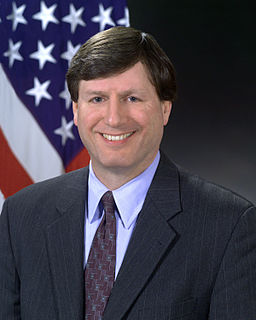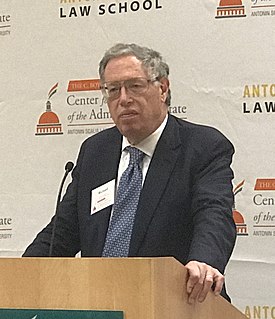A Quote by Marcus Borg
There are people who assume that Christianity is about the afterlife and that our chief problem in this life is that we are sinners who need to be punished and the point of Jesus life is that he took our punishment so we can go to heaven. I write about the problems we get ourselves into by misunderstanding and limiting the way we think about our faith.
Related Quotes
The problems in the world today are not political problems, they are not economic problems, and they are not military problems. The problems in the world today are spiritual problems. They have to do with what people believe. They have to do with our most fervently held thoughts and ideas about Life, about God, and most of all, about ourselves, and our very reason for living.
The problem to me with environmentalism is the idea that we're all gonna die and we need to save ourselves. I don't think it's necessarily the right way to go about it, because I think we need to really just improve our every moment and improve our quality of life. And that will, sort of by default, save us.
Jesus doesn't say, "The religion founded in my name is the way, the truth, and the life, [and] what people say about me is the way." "Our way of worship, the Christian structure, is not the way," [he would say,] "I am. I am. If you want to know what life is all about, what it's supposed to be, where it's supposed to go, where it's supposed to derive its strength from, don't look at anything people say about me. Don't look at the faith that's been created. Look at my life, which is a life ultimately of sacrificial love."
It's just that for so many people that I know, Christianity's this matter of... it has everything to do with morals. Christianity is a religion about morals. And they will even talk about Jesus. And they will say kids need to know about Jesus so they won't smoke, drink, or dance, or go with girls that do, and all that kind of thing. And I kinda go, 'That's not why people need to know about Jesus. The only reason - The only possible excuse for talking about Jesus is because we need a Savior.'
The first act of insight is throw away the labels. In fiction, while we do not necessarily write about ourselves, we write out of ourselves, using ourselves; what we learn from, what we are sensitive to, what we feel strongly about--these become our characters and go to make our plots. Characters in fiction are conceived from within, and they have, accordingly, their own interior life; they are individuals every time.
I think that we're all, as human beings, so limited. If we want to write about ourselves, that's fairly easy. And if we write about our friends or our families, we can do that. But if we want to project ourselves somewhere beyond our personal experience we're going to fail unless we get that experience or we borrow it from others.
I think that we're all, as human beings, so limited. If we want to write about ourselves, that's fairly easy. And if we write about our friends or our families, we can do that. But if we want to project ourselves somewhere beyond our personal experience, we're going to fail unless we get that experience or we borrow it from others.
We are more than our problems. Even if our problem is our own behavior, the problem is not who we are-it's what we did. It's okay to have problems. It's okay to talk about problems-at appropriate times, and with safe people. It's okay to solve problems. And we're okay, even when we have, or someone we love has a problem. We don't have to forfeit our personal power or our self-esteem. We have solved exactly the problems we've needed to solve to become who we are.
To disguise nothing, to conceal nothing, to write about those things that are closest to our pain, our happiness; to write about our sexual clumsiness, the agonies of Tantalus, the depth of our discouragement-what we glimpse in our dreams-our despair. To write about the foolish agonies of anxiety, the refreshment of our strength when these are ended; to write about our painful search for self, jeopardized by a stranger in the post office, a half-seen face in a train window, to write about the continents and populations of our dreams, about love and death, good and evil, the end of the world.
A whole lot of us go through life assuming that we are basically right, basically all the time, about basically everything: about our political and intellectual convictions, our religious and moral beliefs, our assessments of other people, our memories, our grasp of facts. As absurd as it sounds when we stop to think about it, our steady state seems to be one of unconsciously assuming that we are very close to omniscient.




































